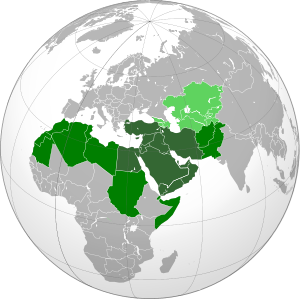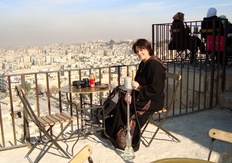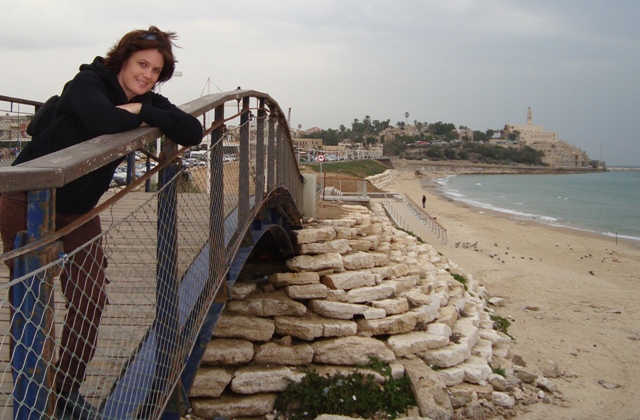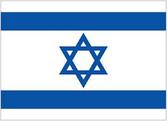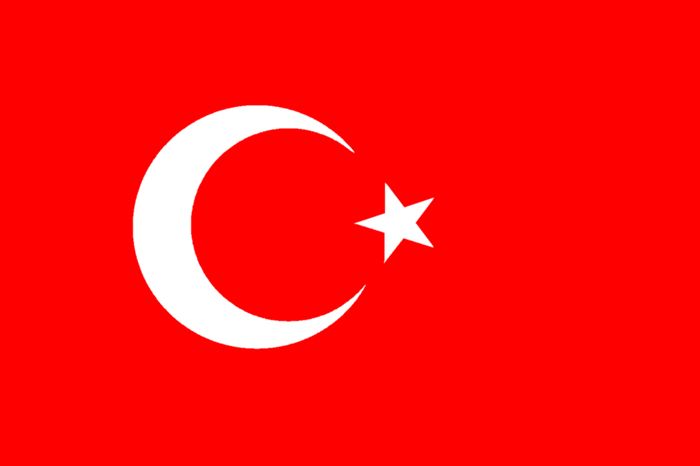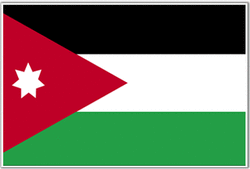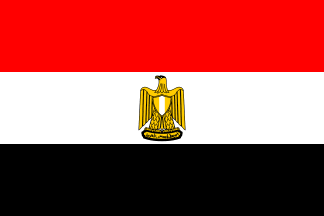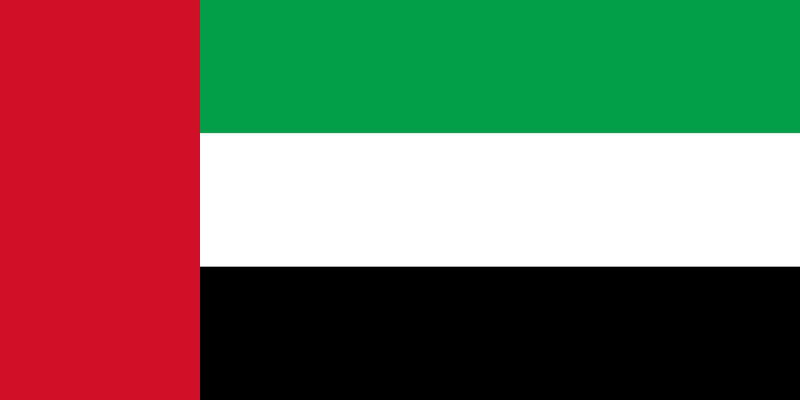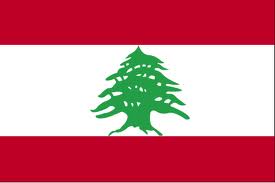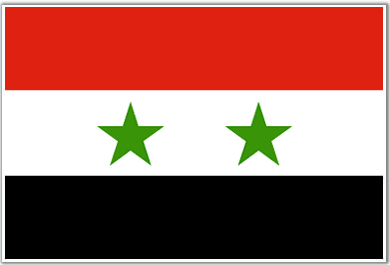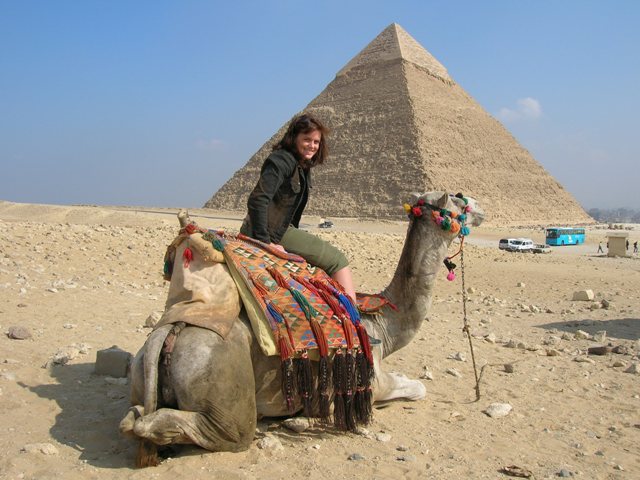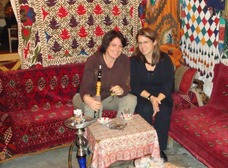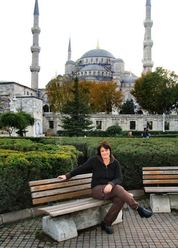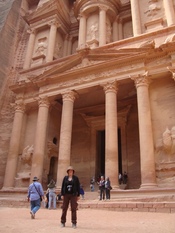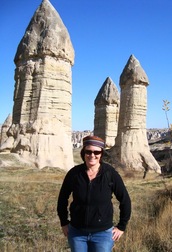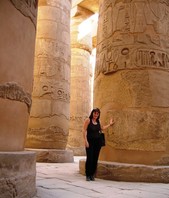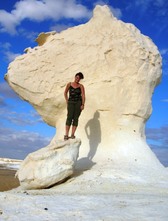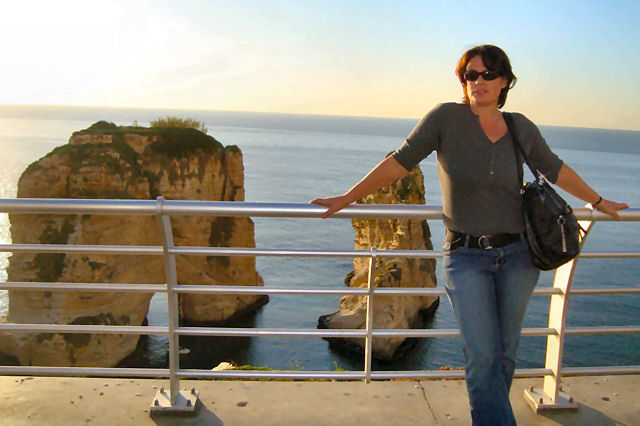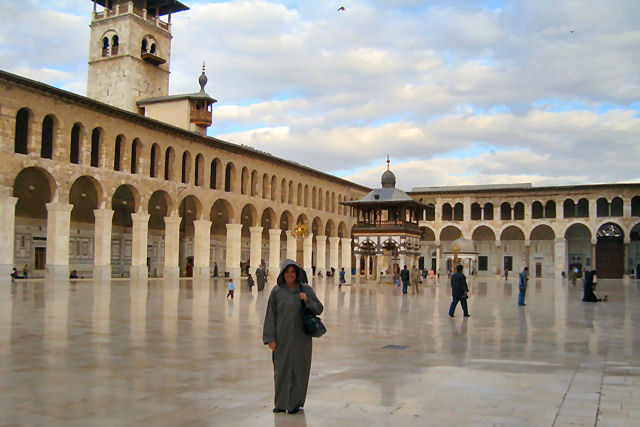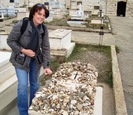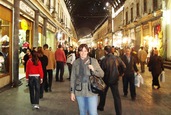Middle East
Wikipedia - The Middle East is a region that encompasses Western Asia and all of or part of North Africa, depending on the context. The history of the Middle East dates back to ancient times, and throughout its history, the Middle East has been a major centre of world affairs. The Middle East is also the historical origin of major religions such as Judaism, Christianity, and Islam. The Middle East generally has an arid and hot climate, with several major rivers providing for irrigation to support agriculture in limited areas.
|
Many countries located around the Persian Gulf have large quantities of crude oil which has resulted in much wealth particularly for nations in the Arabian peninsula. In modern times the Middle East remains a strategically, economically, politically, culturally and religiously sensitive region
CLICK ON THE FLAGS BELOW TO DISCOVER THE BEST THINGS TO SEE AND DO IN THE MIDDLE EAST
|
|
Blue Mosque, Istanbul, Turkey
Treasury at Petra, Jordan
Love Valley in Goreme, Turkey
Karnak Temple, Luxor, Egypt
White Desert, Egypt
|
Teresa the Traveler`s Middle EastTravel TipsDrink Bottled Water Only - Make sure you don`t drink the tap water from any of these countries or you may end up with a severe case of traveller`s diorrhea.Travelers often get diarrhea from eating and drinking foods and beverages that have no adverse effects on local residents. This is due to immunity that develops with constant, repeated exposure to pathogenic organisms. The best means of prevention is to avoid any questionable foods or beverages. Traveler's diarrhea is fundamentally a sanitation failure, leading to bacterial contamination of drinking water and food. It is best prevented through proper water quality management systems, as found in responsible hotels and resorts. In the absence of that, the next best option for travelers is to take individual precautions:
Drink safe beverages, which include bottled water, bottled carbonated beverages, hot tea or coffee, and water boiled or appropriately treated by the traveler. Caution should be exercised with hot beverages, which may be only heated, not boiled. Maintain good hygiene and only use safe water for drinking and tooth brushing. Avoid ice, which may not have been made with bottled water. In restaurants, insist that bottled water be unsealed in your presence. Reports of locals filling empty bottles with untreated tap water and reselling them as purified water have surfaced. When in doubt, a bottled carbonated beverage is the safest choice, since it is difficult to carbonate water when refilling a used bottle. Avoid eating raw fruits and vegetables unless the traveler peels them personally. Avoid green salads, because it is unlikely that the lettuce will have been washed with bottled water Buy a Phrase Book - When visiting the Middle East, I recommend bringing an Arabic phrase book to communicate with locals who may not speak English. Many of the budget restaurants catering to locals do not have English menus and a phrase book can ensure the sandwich you thought you ordered isn’t a pig’s ear or a lamb’s head. Locals are always more receptive when you make an effort to speak their language. Learning how to greet them in their native tongue is a great way to connect and enrich your experience in their country. Be Modest - The Middle East has a predominantly Islamic population with a different set of cultural rules that other parts of the world.You should respect local traditions, customs, laws and religions at all times and be aware of your actions to ensure that they do not offend other cultures or religious beliefs, especially during the holy month of Ramadan or if you intend to visit religious areas. Women should dress modestly when in public areas, such as shopping malls. Clothes should cover the tops of the arms and legs, and underwear should not be visible. Swimming attire should be worn only on beaches or at swimming pools, and not in other public areas. Leave the Drugs and Alcohol at Home - Many Middle Eastern Countries have zero tolerance for drugs-related offences. The penalties for drug trafficking, smuggling and possession, of even residual amounts, of drugs are severe. Sentences for drug trafficking can include the death penalty and possession of even the smallest amount of illegal drugs can lead to a minimum four-year jail sentence. Consuming alcohol is against Muslim principles although alcohol is available for toursits. Just be sure not to get drunk in public as you could be inviting trouble with the law. Hotel Room Rules - It is normal practice for hotels to take photocopies of your passport or other ID. In some places you cannot stay in a hotel if you are under 18 years old and not accompanied by an adult and in many countires it is against the law to share the same hotel room with someone of the opposite sex to whom you are not married or closely related. Same Sex Couples - Although there large gat communities in the Middle East, homosexuallity is illegal in most if not all countries so be aware and be careful to find the safe places to be open about your sexuallity. Photography - Photography of certain government buildings and military installations is not permitted. You should not photograph people without their permission. Men have been arrested for photographing women on beaches. Mosque Etiquitte - When visiting a mosque: Remove Your Hat and Shoes - Hats and sunglasses should always be removed before you actually enter a mosque. Leave your shoes on the rack at the entrance. Some mosques will provide plastic covers for your feet. Dress Appropriately - Modest dress is required. Men and women should both cover as much skin as possible; women are required to cover their heads. Be Respectful - Avoid making loud noises or engaging in unnecessary conversation inside of mosques. Turn off mobile phones, don't chew gum, and do not bring food or drinks inside of a mosque. Take Pictures - Photography is permitted inside of mosques, however you should never take pictures during prayer times or of worshipers performing ablutions before the prayer. For general travel tips on what to pack and how to plan ahead CLICK HERE |

